The Uncomfortable Truths Behind Bolsonaro’s Win
Why did Brazil elect a neofascist? Western media blames Brazilians' fear of rising violence and corruption, but there are gaping holes in this argument.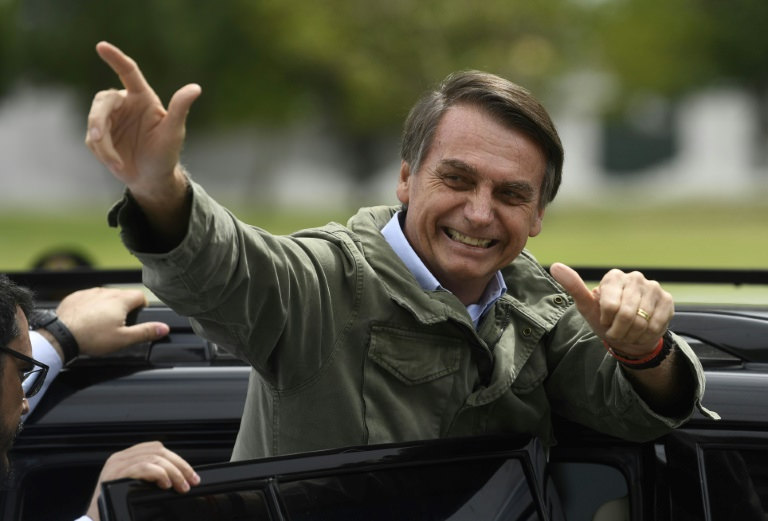 Jeso Carneiro / CC BY-NC 2.0
Jeso Carneiro / CC BY-NC 2.0
Why did the Brazilian people elect a neofascist? If you get your information from the newspapers, you might think that this happened because Brazilians are afraid of rising violence rates or fed up with corruption. These explanations sound great on paper because they function as what sociologist Pierre Bordieu called mind stopping cliches. When hearing something familiar and logical sounding, the brain stops and moves onto another subject.
Violence and corruption. Everyone hates that. What’s happening in sports? This is how the Anglo media wants people to process the issue of the arrival of fascism in Brazil, because if the public begins to scratch under the surface, it will find uncomfortable truths that implicate their own governments, think tanks, corporations and media institutions. That could lead to some difficult questions, so why not stick to the mind stopping cliches of violence and corruption? The problem is that, although both issues may have been used to manipulate the public, neither of them hold up to scrutiny.
Haddad had more support in the most violent regions
Like all countries that have to deal with the legacy of slavery and the fact that one segment of the population considers another segment to be sub-human, Brazil has always been a violent place. The image of Brazil as a land of violence has been burned into the minds of the Anglopublic through films like Pixote, City of God and Elite Squad. Only 6% of Brazilians live in favelas, and many favelas have more middle class residents than poor, but in the minds of many casual northern observers, most Brazilians live in desolate slums full of child soldiers. Could fears of violence have been the deciding factor in electing a military man to the presidency? Brazil certainly sounds scary to many Americans.
While it is true that violence has risen in Brazil in recent years – especially after the start of the austerity policies that began mildly during the last year of Dilma Rousseff’s presidency and were greatly exacerbated by the coup government which took power in 2016 – violence patterns have been marked by a geographical shift which does not strongly correspond with electoral support for Jair Bolsonaro. The case in point is São Paulo state, where Bolsonaro received over ¼ of his total number of votes. Although Brasil witnessed a 14% rise in homicides between 2006 and 2016, São Paulo saw a 46% drop in the same period, with an even greater drop from 2000-2006. São Paulo city has seen its homicide rate of 60/100,000 in the year 2000 drop to 7.8 in 2017, which is significantly lower than most big American cities.
Likewise, statewide homicide rates have dropped from 26/100,000 to 9.5/100,000 in the same period. Although there was a slight increase in the statewide murder rate during 2017, murders actually dropped by 15% in São Paulo city.
The case of Rio de Janeiro, where 67% of voters supported Bolsonaro, is also telling. In 2002, Rio de Janeiro had a homicide rate of 60/100,000. By 2010 it had dropped to 26/100,000. Murder rates began rising again after the mega-events, reaching around 37/100,000 in 2017 – a disturbing statistic, but not one that places Rio de Janeiro among the ten most violent states in Brazil. As I have argued before, however, Rio has a unique political and criminal environment. For example, a report by Amnesty International shows that 25% of all murders committed in Rio de Janeiro last year were done by police officers. Neighboring Minas Gerais has violence issues of its own, but it’s police killed around 10 times fewer people per capita in 2017 that the police in Rio de Janeiro. Furthermore, as Ben Anderson and I discovered while filming the HBO/Vice TV special, The Pacification of Rio, there is evidence that the Rio de Janeiro State government cooked the books, and shifted numbers between homicides, violent deaths of undetermined causes and disappearances to make crime rates appear lower during the lead up to the World Cup and Olympics. Therefore, although there is a recent rise in violence in Rio, the real numbers may be lower than they appear due to statistical manipulation by the government to build up support for the military occupation and, even if they are not, they don’t compare to the numbers from the early 2000s or rank Rio as one of the most violent places in Brazil.
If the homicide rate in Brazil has fallen so dramatically in the last 15 years in Rio and São Paulo, why did Brazil experience its highest murder toll ever last year? One reason is that the Brazilian northeast has been inundated with crack. Last year, 6 of the 10 most violent states in Brazil were located in the Northeast, the region where Fernando Haddad beat Bolsonaro in every state. In Ceará, for example, which has a homicide rate 8 times higher than that of São Paulo, Fernando Haddad received 71% of the vote.
Was fear of violence the reason people in São Paulo elected Bolsonaro, or was fear of violence the reason northeasterners elected Haddad? Let’s face it. Everyone is afraid of violence. But if 25% of the votes for an “anti-violence” candidate come from a region of Brazil that has crime rates comparable to places in Europe or Canada, one could come to the conclusion that either electorate was manipulated or there were other, more important issues at stake.
It’s only corruption when communists do it
The other reason commonly cited for supporting Bolsonaro is Brazilians frustration with corruption, which, for the last 5 years has been nearly exclusively associated in the national and international media with the PT. Like the issue of violence, this does not hold up to a minimal level of scrutiny. President Dilma Rousseff was never involved in personal enrichment through corruption. In fact, she herself is a victim of corruption. Impeached for committing a non-impeachable offense, a budgetary infraction that was systematically committed by all leaders of all levels of Brazilian government and legalized one week after she was removed from office, it has subsequently come out that congressmen were bribed to vote in favor of her impeachment. Luiz Inácio Lula da Silva, who was the one man generally believed powerful enough to block the privatization of Brazil’s massive offshore petroleum reserves, was arrested on charges that he committed “indeterminate acts of corruption” related to an apartment the courts were unable to prove he ever owned and thrown in jail before his appeals process played out, in a move which Glen Greenwald says was obviously done to keep him for running for president this year. Likewise, Fernando Haddad was a victim of corruption when US-backed judge and prosecutor Sergio Moro illegally leaked plea bargain testimony to the press during election season, alleging that it implicates him in a corruption scandal despite the fact that the testimony had already been thrown out by the public prosecutor’s office.
Jair Bolsonaro, on the other hand, spent 25 years affiliated with the most corrupt political party in Brazil, the Partido Progressista (PP), led by the most corrupt politician in Brazilian history, Paulo Maluf, who is on Interpol’s most wanted list and cannot leave Brazil or will be arrested. Furthermore, Bolsonaro is already inviting corrupt politicians to help run his government. These names include:
1) Alberto Fraga, Congressman from the DEM party and gun industry pitchman who Bolsonaro invited to lead his bloc in Congress. Three weeks before the first round elections, in September 2018, Fraga was sentenced to 4 years of semi-open imprisonment after being caught on tape charging and receiving bribes from a bus company;
2) Congressman Onyx Lazaroni, who has already confirmed as Bolsonaro’s chief of staff, who admitted to taking bribes from the JBS meat packing company to use in an illegal campaign slush fund in 2017;
3) Congressman Pauderny Avelino from the DEM party, who was convicted in 2016 of paying cronies millions of dollars above market rate in rents for buildings and used school furniture when he was education minister in Manaus; and
4) Paulo Guedes, a University of Chicago educated monetarist economist and former attache to Augusto Pinochet. Bolsonaro has invited him to be his Economic Minister, even though he is currently being investigated by the public prosecutors office, who want to know how he managed to pocket R$1 Billion in six years while managing pension funds.
If mind-stopping cliches of violence and corruption do not fully correspond with voting patterns and Bolsonaro’s governmental program, why did he win the election? My take is that the election was neither fair nor free. It was the result of a massive fraudulent campaign backed by the US government, Brazilian military and the judiciary to guarantee that the privatizations of the world’s largest offshore petroleum reserves implemented by the coup government of Michel Temer are not reversed, and that the US military has access to Brazilian bases for another possible future petroleum grab in Venezuela. The following events had a much bigger effect on Bolsonaro’s victory than violence and corruption:
1) A joint US/Brazil operation imprisoned leading candidate Luiz Inácio Lula da Silva, who promised to reverse petroleum privatizations and re-allocate state oil profits to public health and education. He was jailed before his appeals process was finished on trumped up charges with no material evidence, based on a single plea bargain testimony made by a convicted criminal in exchange for sentence reduction and partial asset retention;
2) Lula announced he would run for President anyway, as was his right according to Brazilian and international law. The electoral court allowed 1400 candidates with similar legal issues to run, but they made an exception for Lula. Still leading in all election polls from behind bars, with more support than all other candidates combined and double the support of Bolsonaro, the one man easily capable of defeating fascism was barred from running;
3) The UN Human Rights Committee issued a ruling ordering the Brazilian government to allow Lula to run for office. Brazil is a signatory to the UN Protocol on Civil and Political Rights and, according to MP 311/2009, UNHRC rulings are legally binding. The Supreme Electoral Court broke Brazilian law and disobeyed the UN when it refused to let Lula run;
4) In a country where TV crews regularly enter prisons to interview drug traffickers and mass murderers, the courts bared Lula from speaking to Journalists, illegally prohibiting him for communicating to the public why they should vote against fascism in the elections;
5) 3.3 million voters, most of whom were poor and Northeastern – essentially the demographic that most supports the PT party – were purged from the voter rolls two weeks before the elections; and
6) After Bolsonaro support surged in the first round election, Folha de São Paulo revealed that his campaign was using an illegal slush fund created by hundreds of businessmen paying up to $4 Million USD each, to hire tech firms to illegally acquire personal data from users of the WhatsApp social media app. According to the article, this was used to create thousands of demographically targeted groups of 256 uses each and bombard them with lies and slander against the PT party. These lies were not primarily based on fear mongering about violence and corruption, but on slander that the PT party is run by sexual perverts who want to make everyone’s children gay. After Supreme Electoral Court President Rosa Weber received death threats from Bolsonaro supporters and held a meeting with Bolsonaro supporter General Sergio Etchegoyen, she decided to hold off investigations until after the final round of the elections.
International capital and the US government now have exactly what they want in Brazil. All natural resources will be opened to exploitation from foreign capital. The US military will be able to use the Alcantara rocket launching base as a takeoff point for forays into Venezuela. Brazil’s participation in the BRICS is dead in the water and US Petroleum companies will be swimming in Brazilian oil. Regardless of the level of participation by the US and its institutions, these events fit a pattern of US interventions in Latin America over the past 100 years. If we are truly interested in defeating fascism it is important to move beyond cliches and work to identify the real actors at play, so that their power can be countered. In order to do this, we have to move beyond the idea that Brazil operates in a geopolitical vacuum and that the return to neofascism, which was previously installed with ample US government support from 1964-1985, can be explained by oversimplified generalizations on public opinion.
Your support matters…Independent journalism is under threat and overshadowed by heavily funded mainstream media.
You can help level the playing field. Become a member.
Your tax-deductible contribution keeps us digging beneath the headlines to give you thought-provoking, investigative reporting and analysis that unearths what's really happening- without compromise.
Give today to support our courageous, independent journalists.


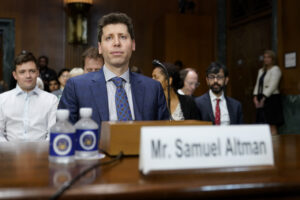
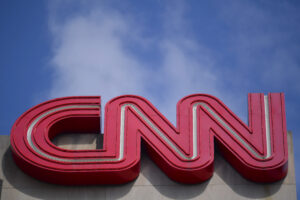
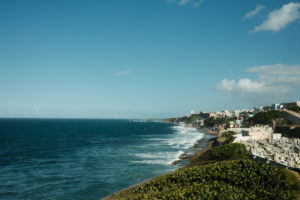

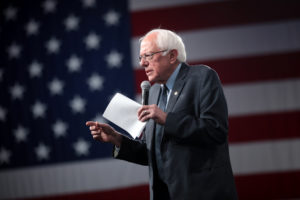


You need to be a supporter to comment.
There are currently no responses to this article.
Be the first to respond.